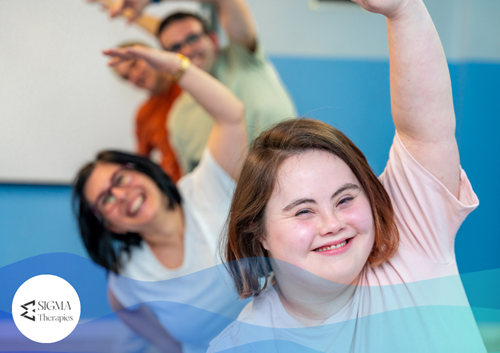Who is Eligible for NDIS Support? A Quick Guide for 2025
The National Disability Insurance Scheme (NDIS) is an essential program in Australia, designed to provide support to people with disabilities. Individuals, families, and service providers alike benefit from a clear understanding of who is eligible for NDIS support.
So what are the NDIS eligibility criteria and its recent reforms? How do these changes impact individuals and organisations that work with disability?

Understanding NDIS Eligibility Criteria
NDIS eligibility isn't based solely on having a disability diagnosis. It involves a more holistic assessment of how the disability impacts a person's ability to participate in daily life. To be eligible, an individual must generally meet the following criteria:
- Age: Be under 65 years of age when applying to the NDIS.
- Residency: Be an Australian citizen, hold a permanent visa, or be a protected Special Category Visa holder.
- Disability Requirements: Meet the disability or early intervention requirements.
Meeting the Disability Requirements
This is the most complex aspect of NDIS eligibility. An individual must prove the presence of a permanent disability that substantially impacts their ability to perform daily activities without assistance. This includes physical, intellectual, neurological, sensory, and psychosocial disabilities. Additionally, individuals who require early intervention to prevent further deterioration of their condition may also qualify for support under the NDIS.
For children under the age of 6, there are early intervention requirements. This means that the child has a disability or developmental delay that, without early intervention, would likely result in the child meeting the disability requirements later in life. Early intervention aims to reduce the impact of the disability and help children develop the skills they need.
Recent Reforms and Eligibility Criteria Changes (2024/2025)
The NDIS is a dynamic system, and changes are continually implemented to improve its effectiveness and efficiency. The recent reforms for 2024/2025 bring significant updates to eligibility criteria and the types of supports covered.
Focus on Functional Capacity
A key shift is the increased emphasis on
functional capacity. The NDIS Amendment Bill updates require applicants to demonstrate how their disability affects their daily activities. This means providing detailed information about how the disability impacts:
- Mobility (e.g., walking, transferring)
- Communication (e.g., speaking, understanding)
- Self-care (e.g., showering, dressing)
- Social interaction (e.g., engaging with others, building relationships)
- Learning (e.g., acquiring new skills, problem-solving)
- Self-management (e.g., managing medication, making decisions)
This focus ensures that resources are directed toward individuals with the 'greatest' needs. For
NDIS occupational therapists, this means assisting clients in clearly articulating the impact of their disability through comprehensive assessments and documentation.
How to Apply for NDIS Support
The application process begins with checking eligibility through the NDIS website or consulting a Local Area Coordinator. If eligible, the next step involves collecting medical documentation, functional assessments, and other supporting evidence from healthcare professionals. This documentation should clearly outline how the disability affects daily life and the types of support required.
Once all necessary documents are prepared, the individual can submit their application online, via phone, or through an NDIS partner organisation. If the application is successful, an NDIS planning meeting is arranged, during which the participant discusses their goals, needs, and preferred support services. Based on this discussion, a personalised NDIS plan is developed, outlining the funding and services available to them.
NDIS Support Lists: What's Covered?
On October 3, 2024, the NDIA released
NDIS Support Lists. These lists are crucial because they clearly outline which supports the NDIS will cover. The lists are temporary, pending the agreement of final rules by governments, and affect access and planning decisions.
This development has significant implications for NDIS participants. It is meant to provide greater clarity on the types of supports funded by the NDIS. Also, its goal is to help participants and providers develop realistic and targeted support plans. Just as important, it informs how NDIS budgets should be allocated to ensure access to essential supports.
This information will allow NDIS providers, such as psychologists and occupational therapists, to provide informed advice to clients on which services are covered and to tailor their offer of assistance accordingly. This might also involve advocating for necessary supports that aren't initially included, demonstrating their value and necessity.
What Happens If an Application Is Denied?
If an NDIS application is denied, one has the right to request a review of the decision. This process involves submitting additional evidence or clarifications regarding the individual's needs. Seeking assistance from an NDIS support coordinator or advocacy service can increase the chances of a successful appeal, ensuring that those who genuinely require support receive the funding they need.
Eligibility Reassessments: Extended Timelines
The NDIA has extended the timeline for submitting reassessment documents from 28 to 90 days. This change is designed to alleviate stress and provide participants with more time to gather the required information. The NDIA has also committed to improving communication throughout the reassessment process.
This is a positive development, as it allows individuals and their support networks (including providers) more time to prepare comprehensive documentation. This can lead to more accurate assessments and better-tailored support plans.
The Role of Healthcare Providers
Psychology, PBS (positive behaviour support), and OT (occupational therapy) practices like Sigma Therapies play a vital role in supporting individuals navigating the NDIS. They conduct comprehensive
assessments to determine the functional impact of a disability and prepare detailed documentation to support NDIS applications and reassessments. By creating tailored support plans, they make sure the participant’s goals align with the NDIS support lists.
They also provide evidence-based therapies and interventions to improve functional capacity and quality of life for participants. And many will advocate for clients to ensure they receive the supports they need. Allied health providers focus often on educating clients and their families about the NDIS, eligibility criteria, and available supports, which makes a real difference in the lives of people with disability.
Market Impact and Industry Responses
The updated eligibility criteria and support lists have had a noticeable impact on the disability support market.
Increased Scrutiny
The updated criteria have led to *increased scrutiny* on borderline cases, particularly those involving variable conditions. This means that applicants need to provide more detailed documentation to demonstrate the impact of their disability. This could lead to a higher administrative burden for both applicants and providers. It also necessitates a deeper understanding of the NDIS framework and the legislation around it.
Shifting Support Responsibilities
The introduction of clear support lists may result in some supports being shifted to state or community services. This could impact the availability of certain services and may require participants to seek alternative funding sources.
For Sigma Therapies, as an example, this means we are staying informed about the services available outside the NDIS, so we are able to connect clients with appropriate resources.
Technology Integration
Implementing digital tools could enhance communication and streamline the eligibility reassessment process further. This could involve using online platforms to share documentation, track progress, and communicate with the NDIA.
Ongoing Training
Providers will need ongoing training to navigate the evolving landscape effectively and ensure they provide high-quality support services. Education about changes in NDIS, new therapeutic techniques and other information assists clinicians to deliver up to date service.
Supporting NDIS Participants in Perth
Navigating NDIS eligibility and the application process can seem overwhelming, but understanding the key criteria and steps involved makes it more manageable. By following the correct procedures and providing thorough documentation, individuals can access the essential services they need to enhance their independence and overall wellbeing.
Understanding the intricacies of NDIS is complex. Professional support from psychology, PBS (positive behaviour support) practitioners, and Occupational Therapists is vital to ensure you understand your NDIS benefits.
Useful links: Check if you're eligible on the NDIS website: Am I eligible | NDIS
Change starts with one conversation.
Call us today and let’s talk about how we can support you or your loved one.
Free 15-minute phone consultation to understand your story.



